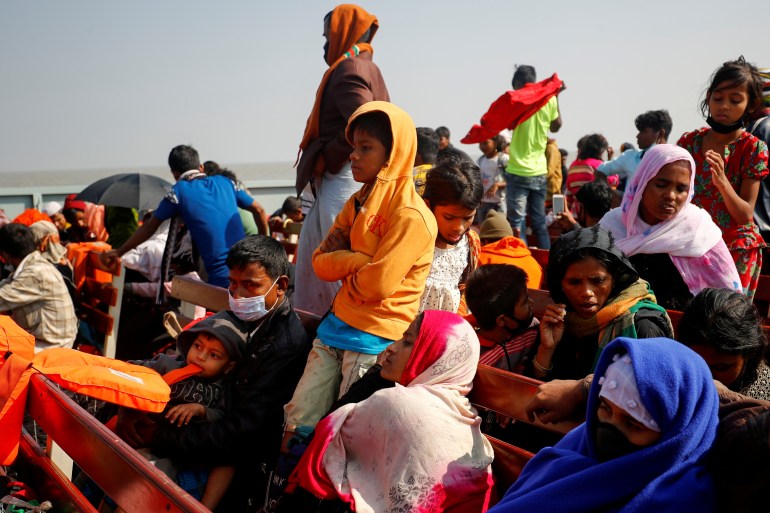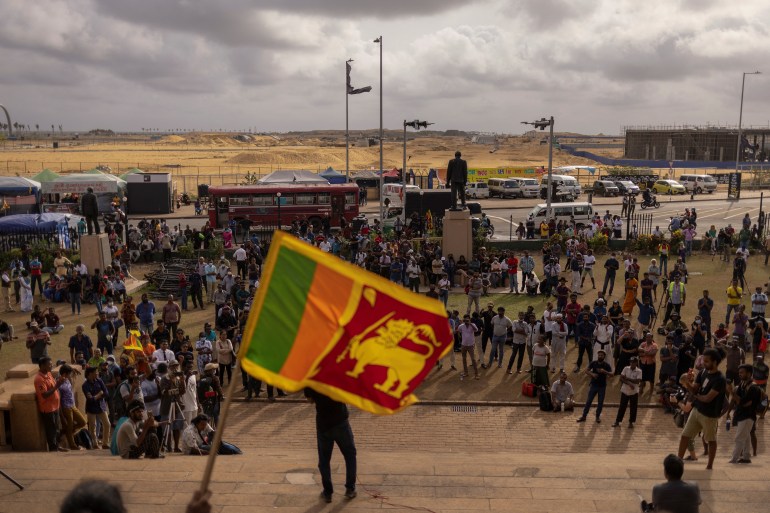ICJ to rule on Myanmar objections to Rohingya genocide case
If the objections are dismissed, the case will move to the next phase and the evidence for the alleged atrocities.

The court heard arguments on the objections in February, and ICJ President Judge Joan E Donoghue will read out its decision on Friday at 3pm (13:00 GMT).
Akila Radhakrishnan, president of the Global Justice Center (GJC) in New York, says it is “reasonably likely” that the ICJ will reject the objections, allowing the court to move to the next stage of the process — the merits phase — when it will consider the factual evidence against Myanmar.
“These objections were nothing more than a delaying tactic and it is disappointing that the ICJ has taken a year and a half to make its decision,” Tun Khin, president of the Burmese Rohingya Organisation UK (BROUK), told Al Jazeera. “The genocide is ongoing and it is vital that the court doesn’t allow any further delays.”
Here are some more details about the lawsuits Myanmar and its military are facing, and what is at stake.
What is the ICJ case?
The Gambia took the case against Myanmar to the ICJ in November 2019, with the backing of the 57-member Organisation for Islamic Cooperation, after a brutal military crackdown in the northwestern state of Rakhine forced hundreds of thousands of Rohingya to flee into neighbouring Bangladesh.
Myanmar is accused of breaching the Convention on the Prevention and Punishment of the Crime of Genocide(PDF).
The ICJ has already ordered Myanmar to take urgent measures to protect the Rohingya, with the judges saying it had “caused irreparable damage” to the group’s rights.

A United Nations investigation found in 2018 that the crackdown had been carried out with “genocidal intent” and recommended that Senior General Min Aung Hlaing and five generals be prosecuted.
The UN mission’s chairman Marzuki Darusman said the victim accounts were among “the most shocking human rights violations” he had come across and would “leave a mark on all of us for the rest of our lives”.
In March this year, the United States determined the Myanmar military’s actions against the Rohingya amounted to genocide.
Myanmar has denied genocide and says the crackdown in 2017 targeted Rohingya rebels who had attacked police posts.
The military, which staged a coup in February 2021, has now taken control of the case, replacing elected leader Aung San Suu Kyi, who initially defended Myanmar at the court in The Hague. She has not been seen in public since the coup and is on trial in secret military courts on dozens of charges.
Some rights groups and activists have raised concerns about the ICJ dealing with the military’s representatives.
They note that Myanmar’s United Nations ambassador remains Kyaw Moe Tun, who was appointed by Aung San Suu Kyi’s National League for Democracy and is now aligned with the National Unity Government established by politicians who were overthrown.
What are Myanmar’s objections?
The objections, filed a month before the military coup, have not been revealed publicly.
But court proceedings indicate Myanmar is contesting The Gambia’s right to bring the case and whether the ICJ has the necessary jurisdiction.
Myanmar ratified the Genocide Convention in 1956 and The Gambia in 1978.
